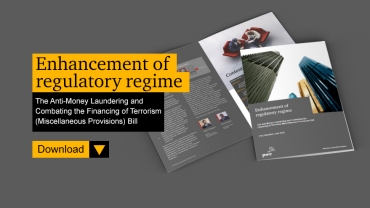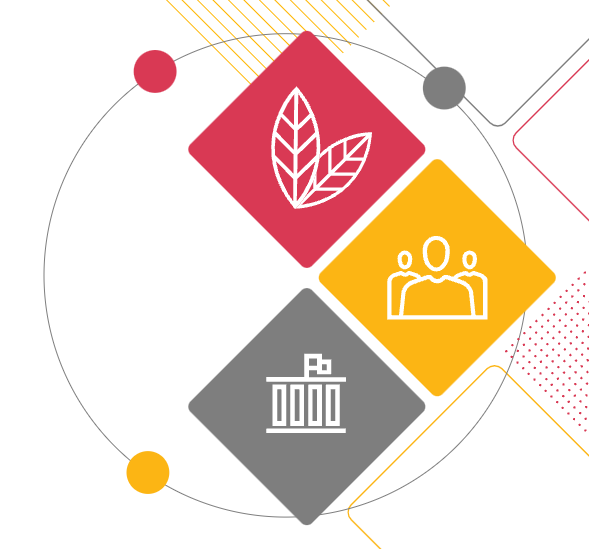
The Perspective - Sustainable Finance & FinTech
“A sustainable financial system is… one that creates, values and transacts financial assets in ways that shape real wealth to serve the long-term needs of an inclusive, environmentally sustainable economy.”
In a post COVID-19 world of financial services, green and sustainable finance is increasingly getting due attention, and is now moving into the mainstream through policy, regulation, market forces and, most importantly, through consumer demand - both Corporate and Retail.
The finance sector’s role in any economy puts it in the driver’s seat to lead the transition to a low-carbon and more sustainable world. Also, in the wake of the latest IPCC (Intergovernmental Panel on Climate Change) report that is aptly termed as "a code red for humanity", it has become even more imperative to ensure the optimum allocation of capital (requirement estimated to be ~$6-$7 trillion per year) towards this transition.
Over the decades, the financial sector has also been one of the primary adopters of cutting-edge technology and saw the rise of FinTechs, using smartphones, application of artificial intelligence (AI) and machine learning (ML), data analytics, the Internet of Things (IoT), distributed ledgers (blockchain) and the likes, have entirely disrupted the way financial institutions operate and service their customers.

How FinTechs can further the cause of Sustainable Finance?
The basic characteristics of FinTechs have always been around innovation and contribute positively towards sustainability. FinTechs’ role in supporting policy formulations aimed towards transitioning to a low-carbon world is aptly recognised by policy makers and regulators. Some of the unique use cases in the area of green and sustainable finance are:
Financial Inclusion
This is a primary need across emerging markets that cuts across all the 3 pillars of Sustainability (Environmental, Social and Governance). Making financial services available to communities through various means like mobility devices would enable them to access services such as loans and insurance, invest in climate mitigation/adaptation activities and become part of the overall financial system, thereby securing their future.

Read more:
ESG Services and Strategies
A bridge to understanding risks and investing opportunities in Mauritius
Lower costs of delivery
Financial services institutions are increasingly applying innovative technologies like mobility, advanced data analytics, machine learning and the likes. These create efficiency, productivity, personalisation and also identification and quantification of risks, while delivering products and services in a more cost-effective manner and making those affordable for communities.
Ease of access to capital markets
Digitisation of business processes through usage of technologies such as intelligent process automations (IPA) and distributed ledgers (DLT) help in issuing and transacting of bonds and other securities in a cost-effective manner. This allows greater access to capital for small businesses that hitherto were only accessible to larger corporations.
Targeting investors
Retail or institutional investors with an appetite for green and sustainable finance investments should be given a platform to route their investible surplus. There is a plethora of FinTech aggregator platforms that allow such pooling of investments towards the right avenues dealing with sustainability.
Improving risk management
Tracking of multiple data points through multiple means and the advanced analysis of these allow financial institutions to identify, assess, manage and disclose risk in a much more efficient manner. This also enables an efficient pricing of products and services through internalisation of multiple risk factors, thereby facilitating the creation of new green and sustainable products.
Inculcate sustainable consumer behaviour
FinTechs offer tools and techniques that are increasingly used by financial institutions to track customer transactions and create nudges towards sustainable spending behaviours. This also facilitates developing innovative sustainable products and services.
Mauritius as the Sustainable FinTech hub for Africa
A couple of questions that we try to answer are ‘why Sustainable Finance in Africa and Mauritius?’, and ‘how may FinTechs play pivotal roles in the pathway towards a low-carbon sustainable future?’. As various global surveys suggest, almost 30 out of the 40 most climate vulnerable countries are in Africa but they receive less than 5% of the allocation of the entire global pie of sustainable finance.
Though Africa is not a net contributor to carbon emission and global warming, it is at the forefront of the looming climate risk through various climate-related calamities such as droughts and famine, rise of sea levels, epidemics etc. Hence, a substantial allocation of capital is required into Africa, especially for climate risk adaptation, and ensuring that it reaches the right beneficiaries.
Recognising the potential of digital revolution, that also caters to the previously mentioned use cases towards sustainable finance, the Government of Mauritius recently announced a plethora of initiatives including the setting up of an ‘Open-Lab’ and a ‘FinTech innovation Lab’ for banking and payment solutions, implementing a centralised digital platform for motor insurance claim recoveries, setting up of a single desk for FinTech related applications, and also a probable introduction of a Central Bank Digital Currency (CBDC).
The setting up of the Mauritius Africa FinTech Hub (MAFH) has also been one of the most progressive steps in fostering the FinTech culture in the region.
The financial sector has also been one of the primary adopters of cutting-edge technology
In addition, the acknowledgement of the need to develop a sustainable finance and a green economy led Mauritius to join PAGE (Partnership for Action on Green Economy) in 2014, and the Government is also looking to develop a comprehensive sustainable finance framework through public-private partnership (PPP). In February 2021, the Bank of Mauritius published a ‘Guide for the Issue of Sustainable Bonds’.
But at the same time, there have been a few challenges at execution level like the time taken to open bank accounts, adoption of the RSL (Regulatory Sandbox License), adoption of sustainable finance goals by local financial institutions and introduction of sustainable/ green financial products. We are also waiting for the launch of our first Green/Blue bond
issuance from Mauritius.
However, given the potential and the need in the region, the authorities in partnership with the private sector and industry bodies (e.g., Mauritius Bankers Association, MAFH, Made in Moris and others) are looking to implement the required mitigating steps.
At PwC, we strongly believe that the following measures would further ensure the success of this marriage of FinTech and Sustainable Finance in the long run:
Define a Regulatory Framework to govern the growth of sustainable finance and taxonomies to clearly articulate what is ‘green’ and ‘sustainable’ along with disclosure norms.
Make the RSL process more ‘on tap’. The recent National Budget has already laid down certain steps towards ensuring this.
Introduce a specific Open Banking / Digital Banking license regime and integrate with the current RSL
Introduce a centralised KYC (‘Know Your Client’) mechanism to make customer onboarding an activity of a few ‘hours and days
Provide differentiated incentives to Private Equity (PE) / Venture Capital (VC) players to invest in FinTechs and Green institution initiatives such as setting up of Open banks, Green banks.
A stronger PPP model is required since 80% of the capital requirement for transitioning to a lowcarbon economy has to come from the private sector.
Private sector financial institutions, especially the local ones, must play pivotal roles in adopting FinTechs and launching sustainable products, positively influence the regulators in amending legislation to make them more contemporary, and effectively leverage RSL to launch innovative sustainable products.
Private sector financial institutions should look at leveraging assistance available from multilateral development banks like the IFC, AFD etc, to curate and launch green and sustainable financial products.















